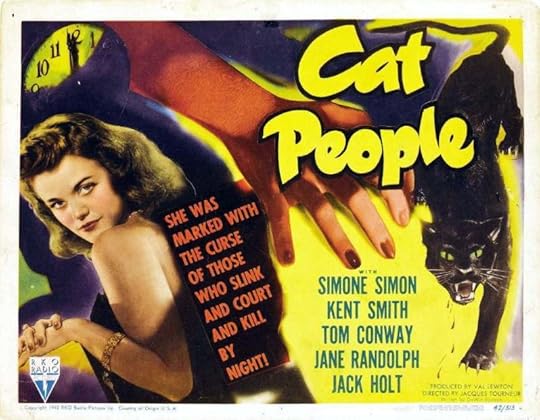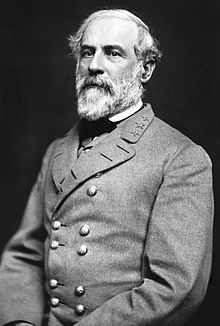C.T. Liotta's Blog, page 25
May 17, 2018
Hot New Releases…
…not just my nickname my freshman year.
For a time yesterday, Rot Gut Pulp author CT Liotta claimed the #1 and #2 spot in Teen & Young Adult Short Stories on Amazon’s Hot New Releases list. Buy Relic of the Damned! today. Preorder Death in the City of Dreams by June 1.
[image error]
Rot Gut Pulp: Read our stories. We won’t tell.
May 16, 2018
Death in the City of Dreams
[image error]After a mad bomber blows up Mumbai’s best-known history museum, Ian Racalmuto and his brother chase him from Chor Bazaar to the city’s Gothic train station. An evil scheme soon becomes clear. Can they stop an explosion in the heart of the city of dreams? Is the bomber acting alone? And will Ian’s troublesome grandfather continue to undermine his mother’s authority?
Death in the City of...
May 12, 2018
Museum für Naturkunde
A chase scene in CT Liotta’s Relic of the Damned! takes place in Berlin’s Museum für Naturkunde.
 The Museum für Naturkunde, Berlin
The Museum für Naturkunde, Berlin
The museum houses more than 30 million zoological, paleontological, and mineralogical specimens.
As is the case in the story, it is home to the largest mounted dinosaur in the world – a Giraffatitan. The museum’s mineral collections date back to the Prussian Academy of Sciences of 1700. Additionally, it features a large meteor collection.
May 2, 2018
A Sequel to “Relic of the Damned.”
Today, I continued work on the sequel to Relic of the Damned. I will announce the title within the next few weeks, and make it available for preorder when the editors over at Rot Gut Pulp finish giving it the once-over. Expect it in late May.

Here’s what I can say: It will be set in Mumbai, India, where Ian and Erik follow the trail of a mad bomber. They will be joined by their grandfather, Mario.
I initially had wanted to set the story in New Delhi, a city of exhausting intensity, but the vill...
April 23, 2018
Val Lewton and Cat People
In 1942, the studio heads at RKO gave Val Lewton his first title to turn into a movie, Cat People. On a budget of $150,000 and with no-name actors, what could have become a display of sub-par special effects and bad makeup instead was turned into a taut, psychological drama by Lewton and his team.

Written by DeWitt Bodeen, and directed by Jacques Tourneur, Cat People follows the Lewton formula for which his other movies would become known: two scene...
January 7, 2018
Ten Days in Vietnam: a Backpacker’s Itinerary on the Reunification Train.
In July, 2017, writer Curt Sembello went to Vietnam and rode the train from Hanoi to Ho Chi Minh city. He wrote a prospective itinerary as he was planning the trip, which made it onto Vietnam eVisa’s website at this link.


Ten Days in Vietnam: a Backpacker’s Itinerary on the Reunification Train. was originally published in The Shrunken Head on Medium, where people are continuing the conversation by highlighting and responding to this story.
December 4, 2017
Pan Am Day
On December 4, 1991, Pan Am officially suspended service. CBS Sunday Morning paid homage to the legacy carrier in 2011 with this segment.

November 7, 2017
United Airlines is no longer flying the Boeing 747
I first flew a United Boeing 747 from Chicago to Hawaii in 1981. I was four years old on my first overseas flight. The pilot smoked a cigar in the cockpit.
I last flew a United Boeing 747 from San Francisco to Hawaii in 2015. By then, the airline had changed livery. The plane was newer, more people filled the cabin and food was no longer free.
San Francisco to Hawaii was both the inaugural and final route of United’s 747.
 The 747 that carried me to Hawaii in 2015.
The 747 that carried me to Hawaii in 2015.There are still many airlines fl...
October 30, 2017
The Failure of Syntax
My friend Thom recently pulled this prescient quote from Rabbi Edwin Friedman, applicable to dialogue today. His book, Friedman’s Fables, remains a favorite of mine in thinking and discussing the world.
The colossal misunderstanding of our time is the assumption that insight will work with people who are unmotivated to change. Communication does not depend on syntax, or eloquence, or rhetoric, or articulation bu...
September 18, 2017
Ruminations on Ken Burn’s “The Civil War”
Last night, I was re-watching Ken Burns’s The Civil War on Netflix. I feel It holds up reasonably well after 27 years, even by today’s standards. What sticks out at me about the Civil War in Burns’s telling:
For the South the war was about maintaining slavery. For the North it was about preserving the Union and not permitting secession. Neither side, in the beginning, had the interests of slaves in mind.When I studied reconstruction in school, it was almost exclusively about how white Northerners and white Southerners interacted and mended fences following war. The desires, hopes and equitable futures of black people were of little interest or fascination. The tone was as though black people were children and white people were the adults in the room. Former slaves certainly were not consulted much about what they’d like to see from a new America during reconstruction. Frederick Douglass is usually mentioned, but reconstruction, as taught, was primarily a white man’s affair with white men’s rules and agreements.While in school, I didn’t consider this. I’m white. I put myself in the shoes of white soldiers and leaders. When you cannot dream of yourself enslaved- because you would not have been- it’s easy to feel as though the moral dilemmas and military tactics of whites are of greatest importance during the war. It misses a significant facet.The rage that the North and South felt toward one another was even greater than that between liberals and conservatives today. When slavery ended, there was little support for former slaves. Rather, there was a southern attitude commensurate with being forced to change things that they did not want to change. “We freed them like you asked. Don’t blame us if they can’t succeed” remains a smug platitude that overlooks a whole set of circumstances. We are still fighting this war. Why can’t I like General Lee anymore?
Why can’t I like General Lee anymore?I feel that a person should not feel guilty about what fascinates them. If a person is naturally interested in Robert E. Lee and the cause of the South, and less interested in slavery and the plight of black people during the 19th century, those are their interests. Study away!
Be fascinated, but think holistically. The way we interpret history continuously changes. I’ve been raised with a white narrative of the Civil War. Black people are finally having 150 years of perspectives heard in the marketplace of ideas. That’s why we’re angry. Being angry and offended is part of being challenged by new and different information that we were not taught as children, or as part of the national myth. Information that contradicts what we have “always known” and always felt is difficult.

Once we finish arguing and being offended, new and different perspectives are quite fascinating. There is a lot to digest and think about. The national dialogue has opened up new ways of studying old subjects, like Robert E Lee. Studying history and preserving a myth are two separate things. We must be clear about what we are doing.
The amends we made were among white people.America has long been held together by the thought that the North and South made amends after the Civil War, and that both sides were empathetic and saw the other’s point of view even if they did not agree. And, perhaps this is true to some extent — white Southerners could understand white northerners wishing to preserve the Union; white northerners came to understand that white Southerners thought they were doing right by their families and communities. White people could assume that everybody intended the best and forgave their one-time enemies. So, there was peace… as long as the role of black people in American society wasn’t discussed as the primary factor for the war, or as something that required time, money, and action afterword. Instead, both sides were allowed to keep their heroes and traditions and ultimately their thinking. It did not hurt white Northerners to let white Southerners continue to be racist.
Simply, what’s missing entirely from the “forgive, understand and forget” narrative are black people. Forget them, and white men can shake hands. Insert them, and any peace becomes uncomfortable and capable of re-igniting the hostility. Imagine if the north pushed back hard on Jim Crow and segregation, or pushed for greater inclusivity. A hundred years later, with the Civil Rights Act and Voting Rights Act, there was turmoil and disgust.
Anyway, that’s what I’m considering this evening, based on what I’m learning and forever limited by my knowledge of history.

Ruminations on Ken Burn’s “The Civil War” was originally published in The Shrunken Head on Medium, where people are continuing the conversation by highlighting and responding to this story.



